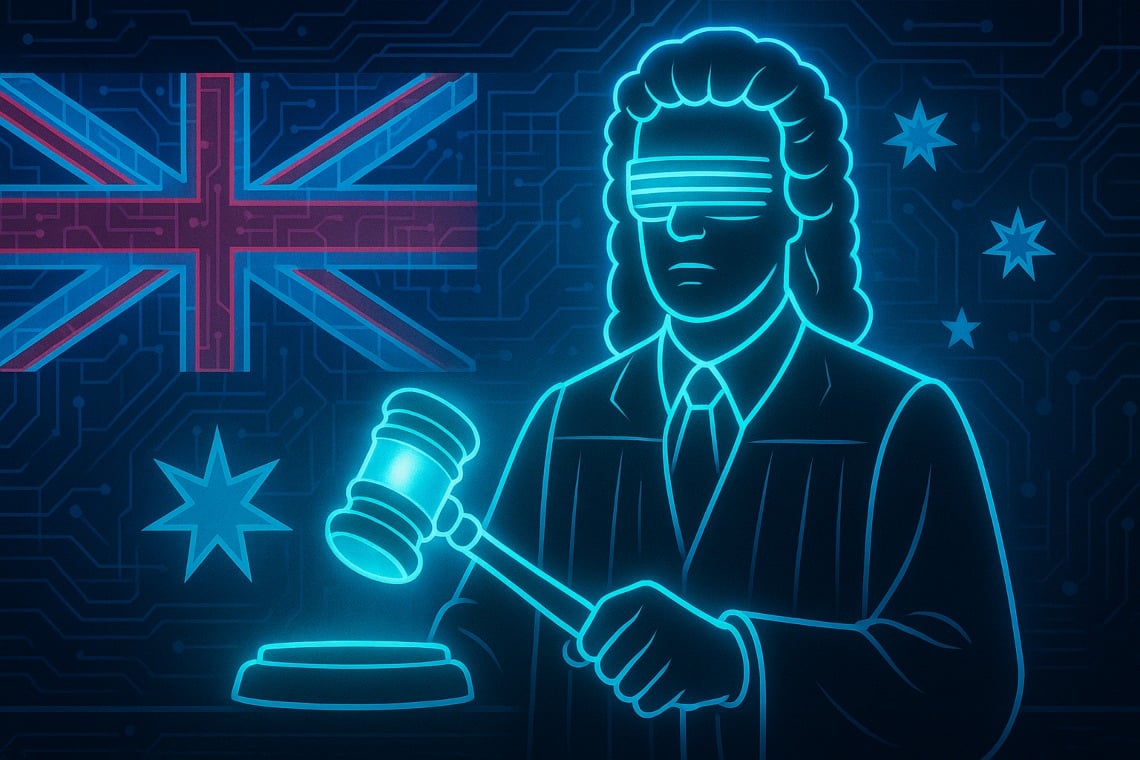Australia Moves to Regulate AI Use of Copyrighted Works
TLDRs;
- Australia launches a major review to align copyright laws with AI’s growing role in content creation.
- Officials reject free text and data mining, requiring AI firms to secure licenses for Australian works.
- The review explores collective licensing systems to simplify rights management and compensation.
- New frameworks may boost transparency tools and compliance startups within the AI ecosystem.
Australia has taken a major step toward addressing one of the most complex issues in the digital era, how artificial intelligence interacts with copyright.
The federal government has announced a two-day review, beginning October 27, to re-examine the nation’s copyright framework in light of rapid advancements in AI technology.
The review, led by the Copyright and AI Reference Group (CAIRG), will explore how existing laws can adapt to AI-generated content and ensure creators receive fair compensation when their works are used to train large models. The initiative reflects growing global concern over the use of copyrighted materials in AI systems, which has prompted similar debates in the United States, Europe, and Japan.
Attorney-General Michelle Rowland emphasized that while Australia supports technological innovation, the government “will not weaken copyright protections in the name of progress.” Instead, she urged collaboration between the technology sector and creative industries to find fair, sustainable solutions that foster both innovation and respect for intellectual property.
Collective Licensing Under Consideration
At the heart of the review is the idea of a collective licensing system, a mechanism that allows rights organizations to license large collections of works on behalf of creators. This system could make it easier and more affordable for AI companies to access licensed data for training while ensuring creators are properly compensated.
CAIRG, which includes 61 members and a 20-person Steering Committee, is tasked with evaluating how such a model might work in Australia. The group will also assess small-claims enforcement mechanisms under the Copyright Act, making it easier for individual artists and writers to pursue violations without facing overwhelming legal costs.
However, many details remain unclear. Industry insiders note that Australia’s proposed licensing framework lacks clarity on key issues such as who would manage licenses, how fees would be determined, and what penalties would apply for unlicensed use. The government has not yet released a detailed timeline or policy roadmap, leaving both creators and developers waiting for answers.
Text and Data Mining Exemption Rejected
In a significant move, the Australian government has rejected calls to introduce a Text and Data Mining (TDM) exception, which would have allowed AI companies to freely analyze and extract information from large datasets for training purposes.
Text and data mining is a key process for AI developers, who rely on vast amounts of online content to train models like ChatGPT and image generators. By ruling out a free-use exemption, Australia has signaled its intent to prioritize creator rights over unrestricted data access.
As a result, developers seeking to use Australian works for training will need to secure explicit permission or purchase a license. This decision may encourage the rise of intermediary marketplaces, platforms where AI companies can obtain “rights-cleared” training data and track content provenance through metadata tools that verify ownership and permissions.
A Path Toward Transparency and Accountability
Several industry bodies have already begun adapting to the new legal landscape. The Copyright Agency now offers annual business licenses for AI tool usage, while APRA AMCOS, the Australasian music rights organization has expressed readiness to collaborate with tech firms on fair licensing agreements.
Experts predict that startups specializing in data provenance and compliance tracking could play a pivotal role in the coming years.
These tools will help AI developers prove that their training data is ethically and legally sourced, aligning with new global norms around transparency and accountability.
The post Australia Moves to Regulate AI Use of Copyrighted Works appeared first on CoinCentral.
You May Also Like

Buterin pushes Layer 2 interoperability as cornerstone of Ethereum’s future

What do they Know? 140,000,000 XRP Sold by Ripple Whales
